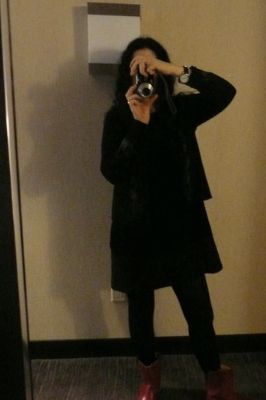Assertiveness
For Me, "I'll Show You" Meant "I'll Show Me."
I realized I was looking to others for approval and permission about being me.
Updated June 28, 2023 Reviewed by Tyler Woods
Key points
- I thought I had to prove myself to others, but I only had to to prove myself to me.
- I realized my childhood fear and defiance about being accepted had spread into adulthood.
- I began to realize how exhausting this all was, that my victories always involved what someone else thought.
It started early, my defiance against being told what I could do or be. Both my older sister and I were micromanaged by our mother, who yearned to escape her own unhappiness by prodding us to live the life she herself had wanted to lead. That meant marriage and children and keeping a home, and if you had to have a job, it should be part-time. Teaching in an elementary school was appropriate and good, which was what my mother did and what my sister would follow her in doing. And while my sister always acquiesced to what my mother wanted for her, I had the opposite reaction and was often verbally punished for it.
“I’m never getting married,” I announced to my mother. “Instead, I’m going to be a writer.”
Of course, I could do both. But back then, I had to be extra assertive and rebellious.
“Don’t ever let anyone hear you say that,” she said. “People will think there’s something wrong with you.” Softening, because she loved me, after all, she told me brightly that writing was an avocation, not a vocation. That it was—that cursed word—a hobby, and a good one for a wife, a mother, a homemaker to have.
That only made me more determined. I bought notebook after notebook, filling them with stories, hiding them under my mattress so no one would spoil the shine I felt. Without telling anyone, I began to send my stories to Seventeen magazine, to a magazine called Ingenue and Calling All Girls, and when they weren’t accepted, I felt like there was a huge finger pointing at me. I told you so, it said.
But I didn’t give up. Not even in college, when I was in a writing class with a famous professor, who gave a withering assessment of my work. The other writers in the class, stunned, came to my defense, but all I could hear was that professor’s words in my head. “You’ll never make it,” he told me. “You don’t have the stuff.”
I went back to my dorm and sobbed, and then I picked myself up and wrote, because boy, was I going to show him. When I published my first novel a few years later and it was a sensation, I sent a copy to him, with a note: I did it. You were wrong. But instead of proving anything, he sent me back a note, saying only how pleased he was, that he always knew I could.
I felt myself going crazy. To me, this was supposed to be vindication. But he didn’t even remember what he had said to me!

I began to realize how exhausting this all was, that my victories always involved what someone else thought of me, how they saw me, instead of what I felt and saw about myself.
It was a friend who later taught me how useless this whole “I’ll Show You” persona was. She was a brilliant writer, with a top agent and a publisher, and initially, she had the same fears I did. What were people thinking of us? Did they like us? Respect us? Were they looking down at us because we were not as connected or famous as they were? Or worse, because our work wasn’t as good?
I struggled to belong, to prove I had worth, and to make everyone see it. I’d go to literary parties and mingle and make them see me as the popular gadabout I most surely wasn’t. Sure, I’d sometimes be miserable. I’d feel inauthentic. But my being there, to me, was proof that I was one of them.
And then one day, my writer friend made what I thought was a shocking decision. Her solution to the "I’ll Show You" dilemma was so very different than mine. Instead of keeping her top agent, she left him and didn’t look for another. Instead of publishing with a big-name publisher, she went to a respected small press where she felt treated like gold. Instead of going to parties and hobnobbing uncomfortably, she stayed home to write or be with her husband or see a friend. It was what fed her. She had what she needed, rather than what others needed for her. Did I think any less of her as a writer? Actually, I thought more of her. I admired her for following her own path, for stubbornly resisting the call of acknowledgment from others.
And in doing so, her work got even better. And she got even happier.
Last week, I gave a whole new novel to someone to read. Of course, I was worried about what she’d think. Of course, I wanted it to be perfect, I wanted to prove my worth to her. That’s when I realized my “I’ll Show You,” didn’t really mean that at all. Instead, it was fear. What I was really saying was, “Please don’t make me give up because I’m not good enough,” when the only person who could really make me do that was me.
And then my reader told me the book wasn’t there yet. But instead of my “I’ll Show You” reflex, that stubborn need to prove her wrong, I relaxed. “Wasn’t there yet” means it is a work in process. Hey. Just like me.
Caroline Leavitt’s new novel, Days of Wonder, will be published on April 23, 2024, by Algonquin/Hachette.


